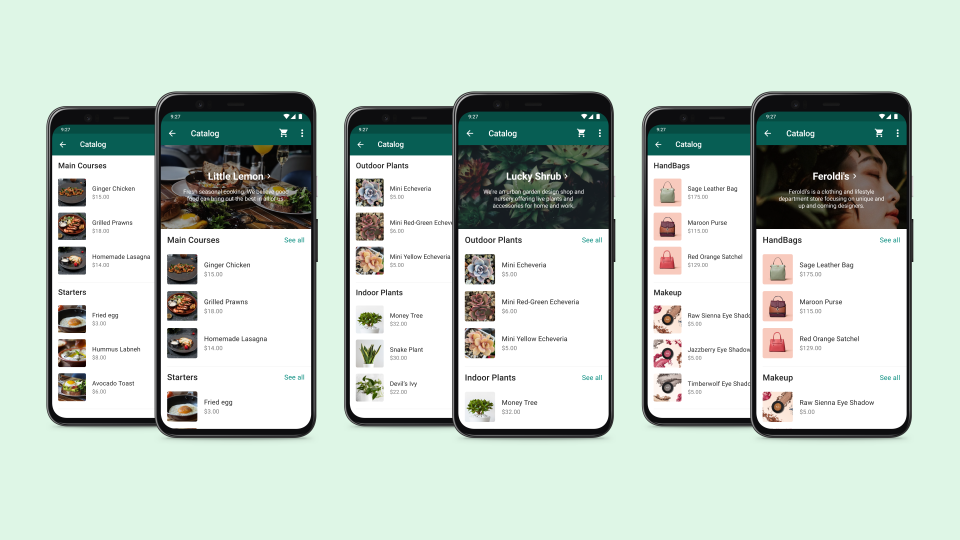WhatsApp Introduces Catalogue Collections

WhatsApp’s slow march to commerce has just passed another mile marker, with an update that allows merchants to create catalogue collections.
The feature, unveiled Wednesday, is targeted to small businesses, enabling them to sort or group products from their catalogue. The idea is to free shoppers from having to scroll endlessly to find particular items. In one example, the company said clothing stores would now be able to create collections for men’s or women’s apparel categories, or organize items according to type, like shirts or pants.
More from WWD
2020 Holiday Gift Ideas: Google's Top Searched Beauty, Home and Tech Gifts
How "The Bachelor" Contestants Have Gone From Reality T.V. to Mega-Influencers
“We want to make WhatsApp the best way for people to shop for goods and services and for businesses to connect with their customers, which is why we are making it easier to see what a business offers on WhatsApp — just in time for the holiday season,” the company explained.
The change is so fundamental, it’s a bit surprising that the company is only now getting around to it. But that’s been WhatsApp’s modus operandi so far, evolving incrementally to grow a stable shopping infrastructure.

Courtesy image
The platform launched catalogues for businesses in 2019, shopping carts in 2020 and this year, it opened up catalogue management to desktop and mobile and gave stores the ability to hide products that are no longer available.
But that was all prelude to the inevitable — Facebook Shops’ expansion from Facebook and Instagram to WhatsApp in June. The move turned the chat app, which was used mostly for customer service and communications, into a shopping platform.
Over the last few years, Facebook has been pushing to unify its family of apps, and the strategy extends to its shopping initiatives. The social giant’s focus on social commerce tends to revolve around its own platform and the company’s Instagram business.
Focusing on chat, WhatsApp is cut from a different cloth, so it’s no surprise that it approaches shopping in a different way. But the motivation is clear: WhatsApp is a massively popular app in places like India and Brazil, giving Facebook potentially solid footing for a commerce play in emerging markets.
In other regions, like Asia, chat apps act like hubs for shopping, ride hailing, food ordering and more. For instance, China’s WeChat, which has grown its third-party ecosystem out to cover a multitude of services, nabbed the equivalent of nearly $250 billion in annual transactions last year.
The motivation and strategy look obvious. What’s less clear is what Facebook’s transformation from a social media company to a metaverse company may mean to its family of apps.
Metaverse applies to virtual worlds that connect people in various ways, including augmented reality, virtual reality and their applications across glasses, headsets and other devices. For now, it will include smartphones, but it’s generally considered next-generation tech beyond mobile devices.
In a leaked memo this summer, Facebook chief executive officer Mark Zuckerberg — who has publicly discussed his enthusiasm for the metaverse — confirmed that the company’s work on communities, commerce and virtual reality will turn its attention to the emerging tech as a priority. Facebook is so dedicated to this idea that it reportedly plans on rebranding itself, even changing its name, possibly as soon as next week, according to a new report from The Verge based on a source “familiar with the matter.”
WhatsApp seems somewhat removed from the musings of its parent. But it’s hard to ignore the fact that it’s a phone-based chat application tied to a company that’s looking to go beyond phones.
Sign up for WWD's Newsletter. For the latest news, follow us on Twitter, Facebook, and Instagram.

 Yahoo Movies
Yahoo Movies 
